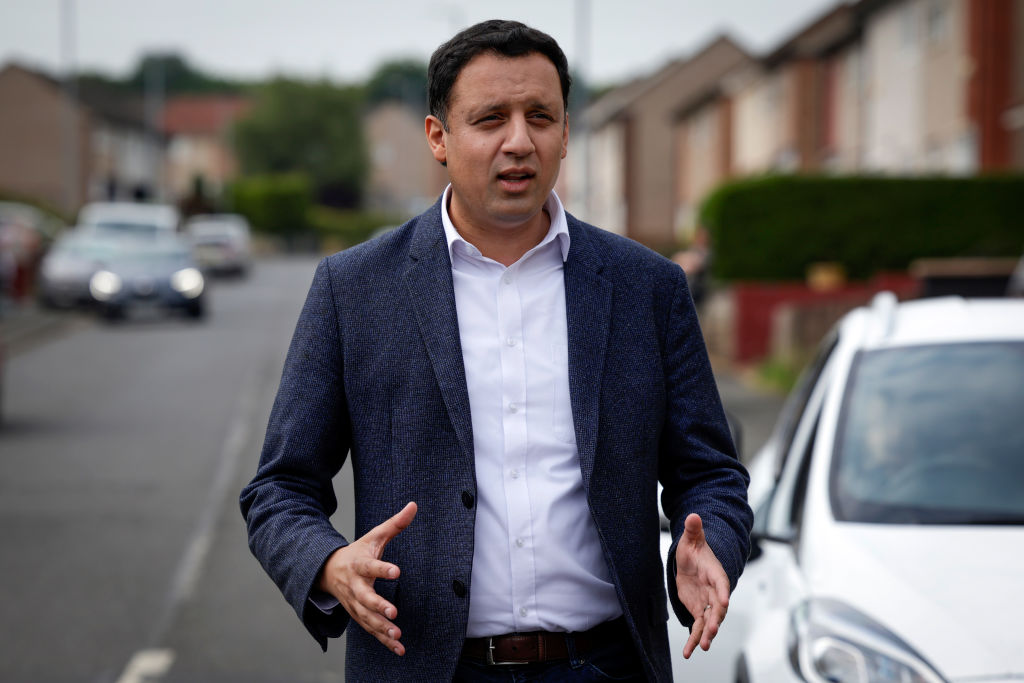Few politicians had a better 2023 than Anas Sarwar. The Scottish Labour leader began last year with his party still in the doldrums, languishing behind a seemingly impregnable SNP led by a seemingly indefatigable Nicola Sturgeon.
A resignation, a camper van, and an incompetent successor later, and that has all changed. Scottish Labour is now in the ascendency and looking towards the coming general election in not with its normal trepidation, but with newfound relish. That much, at least, was clear from Sarwar’s speech – notionally kickstarting the party’s general election campaign – earlier this week (MON).
This desire for change is Sarwar’s strongest suit
As in the rest of the UK, Scottish Labour is not awash with substance or inundated with ideas. Sarwar identified a lot of problems in his speech, but fewer solutions. Where he does have the right plan, delivery is vague. He promised economic growth would be Scottish Labour’s ‘first priority’, but there was little sense of how that particular holy grail would be found. Equally, he pledged to bring ‘the NHS and social care system into the 21st century’, but offered scant evidence of how that will happen.
This lack of detail is not a new phenomenon, and the truth is it matters very little to voters in Scotland, with Scottish Labour now enjoying a six-point lead over the SNP, according to the most recent polling. After a decade and a half of SNP and Conservative government, voters in Scotland are seemingly desperate for change, and Sarwar offers it.
This desire for change is Sarwar’s strongest suit, allowing him to win back voters Scottish Labour long-thought permanently lost to the SNP. In his speech he appealed directly to those who support change through independence, telling them: ‘We may ultimately disagree on the final destination for Scotland, but on this part of the journey, let’s unite to change our country and get rid of this Tory government.’
In framing himself as the change candidate, Sarwar has been not only abetted but actively enabled by Sturgeon’s successor, the embattled SNP leader Humza Yousaf. His administration has been beset with sleaze and scandal, most recently when it emerged his health secretary had tried to get taxpayers to cover an £11,000 data roaming bill run up by his family streaming football matches while on holiday in Morocco.
Meanwhile, Yousaf has also lost control of the Scottish government’s finances, necessitating swingeing cuts to local services and significant tax rises – which Sarwar said he aspired to reverse – in the recent devolved budget.
By far the biggest boon to Sarwar, however, is Yousaf’s failure to progress independence, which has seen the SNP largely cede the change agenda to Scottish Labour. In fairness to Yousaf, he has recognised this and is trying to amend it. But after a decade of false dawns, false starts and false promises, the more fanciful arguments for secession ring increasingly hollow, particularly compared to the prospect of a Labour government at Westminster. Yousaf’s latest gambit – that Scots will be £10,200 a year better off after independence – is, after all, not even enough to live stream an Old Firm game from your riad in Marrakech.
All this explains why Sarwar is able to sound increasingly bullish as he looks ahead. After all the difficulties of the last decade for Scottish Labour, all he seemingly now needs to do to win is sit tight, say nothing, and let those voters seeking change come to him. As a dress rehearsal for that reality, his speech could not have gone much better.






Comments